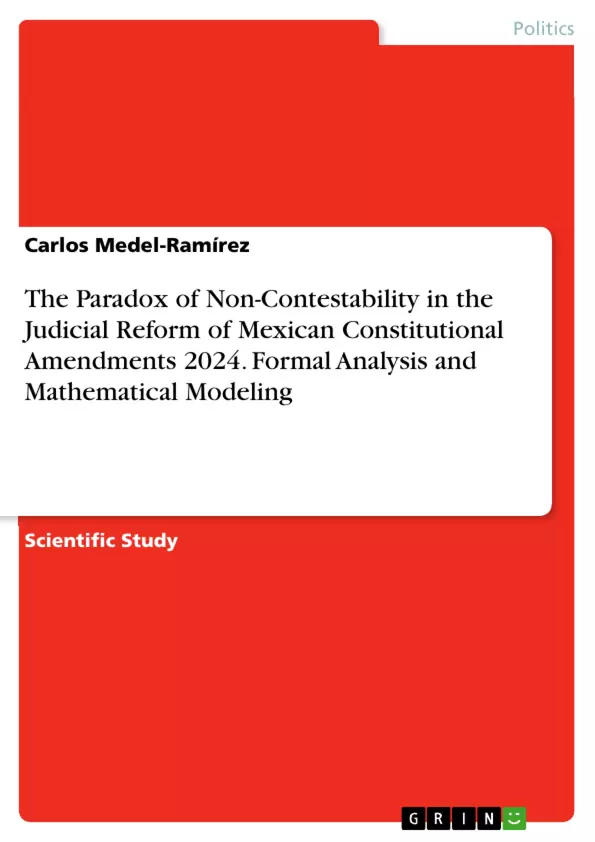This article critically examines Mexico’s 2024 judicial reform, which introduced the principle of non-contestability (inimpugnabilidad) for constitutional amendments, effectively removing judicial oversight from these amendments. Drawing on comparisons with judicial review frameworks in Germany, India, and the United States, the study reveals the significant risks posed to Mexico’s legal coherence, human rights protections, and democratic accountability under this reform. Using formal logic, set theory, and game theory, it models the potential conflicts and incoherences that arise from an unchecked constitutional amendment process. The study argues that non-contestability enables amendments that might contradict Mexico's constitutional principles to stand without a corrective mechanism, raising critical questions about the balance of power and the protection of fundamental rights. Solutions such as establishing a limited judicial review or an independent constitutional review council are proposed to prevent legal inconsistencies and protect democratic principles.
Inhaltsverzeichnis (Table of Contents)
- Introduction
- Comparative Analysis: Judicial Review Models in Other Countries
- Germany's Eternity Clause
- India's Basic Structure Doctrine
Zielsetzung und Themenschwerpunkte (Objectives and Key Themes)
This article critically analyzes the implications of the principle of non-contestability (inimpugnabilidad) in Mexico's constitutional amendment process. It uses formal logic, set theory, and game theory to model potential legal inconsistencies arising from the removal of judicial oversight. The analysis draws on international comparisons to highlight the risks to legal coherence, human rights, and democratic accountability.
- Analysis of the principle of non-contestability in Mexican constitutional reform.
- Comparative analysis of judicial review models in Germany and India.
- Assessment of the risks to legal coherence, human rights, and democratic accountability.
- Mathematical modeling of legal inconsistencies resulting from unchecked reforms.
- Proposal of potential solutions, such as limited judicial review or a constitutional review council.
Zusammenfassung der Kapitel (Chapter Summaries)
Introduction: This chapter introduces the Mexican constitutional reform that removes judicial oversight of constitutional amendments, raising concerns about its impact on legal consistency and human rights protection. It highlights the loss of mechanisms to check potential abuses of power and contrasts this approach with those of other countries.
Comparative Analysis: Judicial Review Models in Other Countries: This section compares the Mexican approach to the models employed in Germany and India. It explores Germany's "eternity clause" which protects fundamental principles from alteration, and India's "Basic Structure Doctrine," which safeguards essential constitutional elements from amendment. The chapter analyzes the historical context and practical applications of these mechanisms.
Schlüsselwörter (Keywords)
Non-contestability, Judicial reform, Constitutional amendments, Mathematical modeling, Human rights protections, Judicial review, Germany's Eternity Clause, India's Basic Structure Doctrine, Legal coherence, Democratic accountability.
- Arbeit zitieren
- Carlos Medel-Ramírez (Autor:in), 2024, The Paradox of Non-Contestability in the Judicial Reform of Mexican Constitutional Amendments 2024. Formal Analysis and Mathematical Modeling, München, GRIN Verlag, https://www.grin.com/document/1516209



